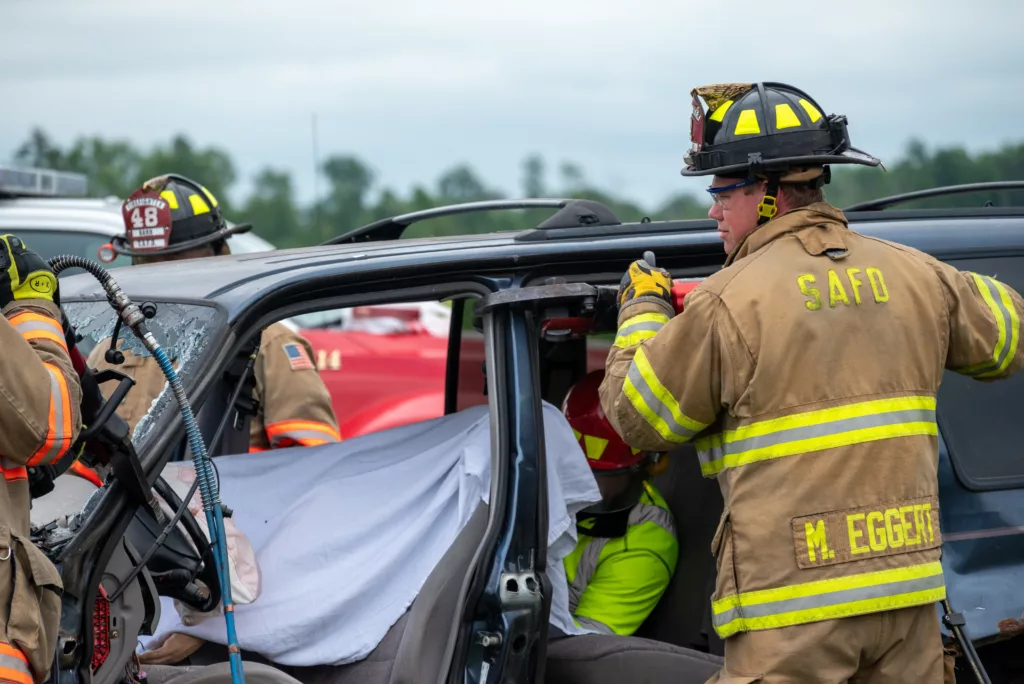
Every year, truck accidents claim numerous lives and cause severe injuries. Due to the sheer
size and weight of commercial trucks, these accidents often have devastating consequences.
Understanding who is liable in these cases can be complex, given the many parties involved in
the operation of a commercial truck. This post aims to elucidate the legal aspects of truck
accidents and clarify the issue of liability.
Understanding Truck Accidents:
A truck accident involves a commercial truck, such as an eighteen-wheeler, semi-truck, or
delivery vehicle, colliding with other vehicles or pedestrians. Truck accidents are inherently
different from other vehicular accidents due to the size and weight of the truck, the unique
regulations governing the trucking industry, and the different types of damages they cause.
The sheer size and weight of trucks mean they can cause extensive damage, often far
exceeding that of regular car accidents. A fully loaded commercial truck can weigh up to 80,000
pounds, while an average passenger vehicle weighs around 3,000 pounds. The discrepancy in
size and weight often means accidents involving trucks result in severe, sometimes fatal,
injuries.
Truck accidents are unfortunately common. According to the Federal Motor Carrier Safety
Administration, there were approximately 450,000 police-reported crashes involving large trucks
in 2017. The severe nature of these accidents highlights the importance of understanding who
can be held accountable.
Who Can Be Held Liable in a Truck Accident?
Liability in a truck accident can fall on various parties:
● Truck Driver: If the driver was negligent, such as by speeding, driving under the
influence, or flouting regulations, they could be held responsible. For instance, federal
regulations limit the number of hours a driver can be on the road to prevent fatigue-
related accidents. If a driver violates these regulations and causes an accident, they
could be held liable.
● Trucking Company: The company could be liable under “vicarious liability,” a legal
principle where an employer is held responsible for the actions of its employees.
Companies may also face “negligent hiring” claims if they failed to properly vet their
drivers or neglected to provide adequate training.
● Truck Manufacturer: If a faulty part contributed to the accident, the manufacturer could
be held liable under product liability law. For example, if the brakes were defective,
leading to a crash, the manufacturer could be held responsible.
● Cargo Loaders: Improperly loaded or secured cargo can cause accidents, making the
cargo loading company potentially responsible. An overloaded truck or unbalanced
cargo can lead to tipping accidents or make it more difficult for a truck to stop in time to
avoid a crash.
In each case, negligence needs to be established, which involves proving a duty of care, a
breach of that duty, and resulting harm.
The Role of a Personal Injury Lawyer in a Truck Accident Case:
Given the complexity of truck accidents, hiring a personal injury lawyer can be crucial. A lawyer
can help identify all potentially liable parties, collect and analyze evidence, evaluate damages,
and negotiate with insurance companies. In cases where settlement isn’t possible, a lawyer will
represent the victim’s interests in court.
At Dejeu Law Firm, we have experience handling truck accident cases. We understand the
complexities and are dedicated to fighting for the justice and compensation our clients deserve.
This includes investigating the accident, gathering evidence, negotiating with insurance
companies, and advocating for you in court if necessary.
Furthermore, our team is well-versed in the unique regulations governing the trucking industry.
We’re adept at identifying whether federal or state laws were violated and how those violations
might contribute to liability in a truck accident case.
Conclusion:
Determining liability in a truck accident is a complex process involving many factors. It requires
a thorough understanding of the laws and regulations governing the trucking industry, as well as a meticulous examination of the evidence. This can include reviewing logbooks, examining the
truck’s Event Data Recorder (EDR), also known as black box, investigating the trucking
company’s practices, and more.
If you or a loved one has been involved in a truck accident, it’s essential to seek legal counsel
promptly. Time is of the essence as crucial evidence can be lost or destroyed over time. At
Dejeu Law Firm, we’re here to provide the expert assistance you need. Contact us today for a
consultation.
Understanding the legal aspects of truck accidents and the question of liability is just the first
step. It’s our job to guide you through this challenging process and fight for the compensation
you deserve. After all, the aftermath of a truck accident isn’t just about recovering from physical
injuries—it’s about reclaiming your life.
